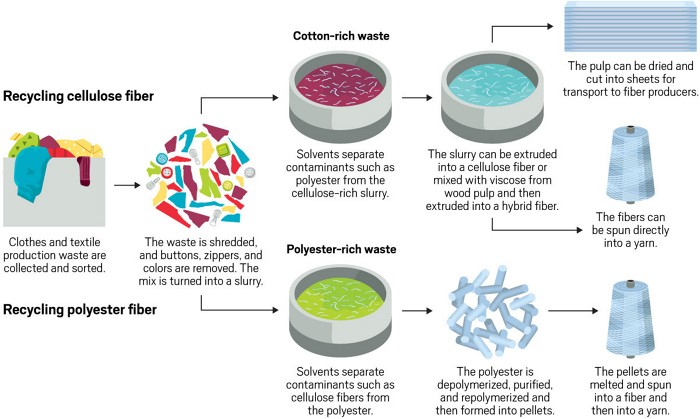
Natracare
unsplash.com
GOTS Certified Organic Textiles

GOTS (Global Organic Textile Standard) certification is the world’s leading processing standard for textiles made from organic fibers, ensuring environmental and social responsibility throughout the entire supply chain. To achieve GOTS certification, products must contain a minimum of 70% organic fibers, with those labeled simply “organic” containing at least 95% organic fibers. The standard prohibits the use of hazardous substances and requires compliance with strict environmental criteria, including proper wastewater treatment and restrictions on non-organic materials. Key aspects of GOTS certification include:
- Organic fiber cultivation without pesticides, harsh chemicals, or GMOs
- Fair treatment of workers, including no child labor, fair wages, and safe working conditions
- Environmental protections such as water conservation and chemical runoff prevention
- Stringent quality control for dyes and processing agents
- Third-party verification to ensure compliance throughout the production process
By choosing GOTS certified organic textiles, consumers can be confident they are supporting sustainable and ethical practices in the textile industry.
Fair Trade Bedding Artisans

Handmade Organic Pillows

Handmade organic pillows offer a luxurious and eco-friendly sleep experience, crafted with meticulous attention to detail and sustainable materials. These pillows are typically filled with certified organic wool batting, latex, or plant-based materials like buckwheat, surrounded by organic cotton sateen cases. The handmade process ensures superior quality control and allows for customization, with many manufacturers offering adjustable loft options to suit individual sleep preferences.Key features of handmade organic pillows include:
- Hypoallergenic properties, naturally resistant to mold, mildew, and dust mites
- Temperature regulation and moisture-wicking capabilities
- Chemical-free construction, promoting healthier sleep environments
- Durability and longevity, often lasting longer than conventional pillows
- Easy maintenance, with some pillows benefiting from natural sun exposure for cleaning
- Customizable options, allowing users to adjust fill levels for optimal comfort
Artisan Weaving Techniques

Innovative Textile Recycling
Key innovations in textile recycling include:
- SuperCircle’s streamlined collection and sorting systems
- Saentis Textiles’ in-house recycling machines for immediate fabric scrap processing
- Unspun’s 3D weaving machine that reduces waste by creating custom-sized garments on demand
- Rubi Labs’ carbon capture technology that transforms waste CO2 into cellulose for yarn production
These advancements are crucial for meeting increasingly stringent regulations and industry demands for sustainable practices in textile production and waste management.
Eco-Friendly Packaging Solutions

Eco-friendly packaging solutions are revolutionizing the bedding and textile industry, aligning with the sustainable ethos of organic and fair trade products. Compostable packaging made from cornstarch and cassava-based materials offers a biodegradable alternative to traditional plastic mailers. Innovative options like mushroom packaging, which utilizes mycelium to bind agricultural waste into biodegradable materials, provide excellent insulation for delicate textiles.Key sustainable packaging trends for organic bedding include:
- Biodegradable and compostable mailers and boxes
- Recyclable packaging made from post-consumer waste
- Reusable containers that customers can repurpose
- Plant-based plastics derived from renewable sources
- Water-soluble packaging for smaller items
- Zero-waste designs that eliminate excess materials
These eco-friendly solutions not only reduce environmental impact but also enhance brand image, appealing to environmentally conscious consumers seeking sustainable sleep products.
Ethical Sourcing Practices
Ethical sourcing practices in the textile industry focus on ensuring that materials and products are obtained through responsible and sustainable methods. These practices prioritize fair labor conditions, environmental sustainability, and transparency throughout the supply chain. Key aspects include:
- Responsible raw material procurement, such as using organic cotton or recycled fibers
- Fair wages and safe working conditions for workers in textile factories
- Traceability and transparency in the supply chain to verify ethical practices
- Adherence to certifications like Global Organic Textile Standard (GOTS) or Fair Trade
- Minimizing environmental impact through eco-friendly production processes and reduced water usage
By implementing ethical sourcing practices, textile companies can reduce their environmental footprint, improve worker welfare, and meet growing consumer demand for sustainably produced bedding and textiles.
